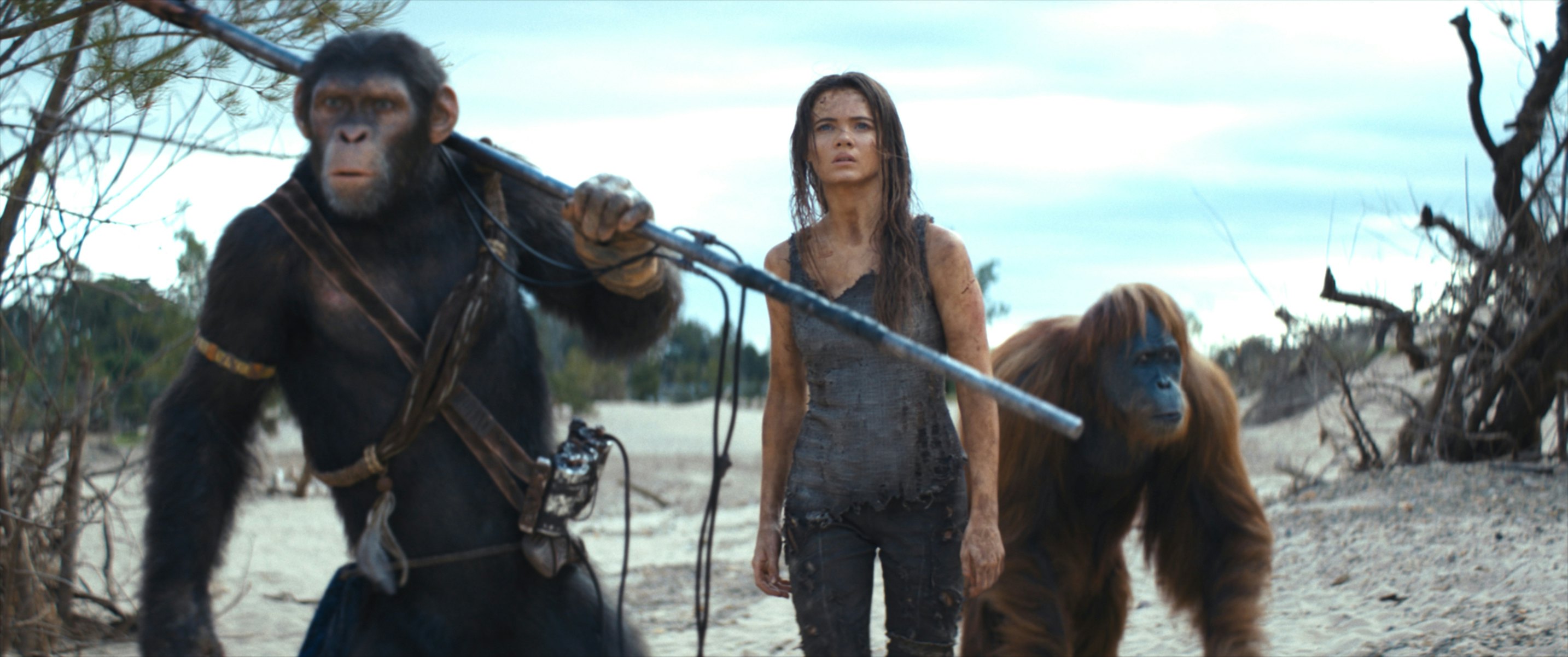
Before there were sci-fi film franchises, there was Planet of the Apes. In 1973, four years before Star Wars conquered theaters and six years before Aliens and Star Trek, there were already five installments in the Apes saga. Granted, it took five more decades to make five more movies, but the tenth Apes film — Kingdom of the Planet of the Apes — hit theaters earlier this year and recaptured the magic of the franchise’s best parts.
Now, after solid reviews and modest box office success, Kingdom of the Planet of the Apes is streaming on Hulu. Here’s why you can’t miss this excellent, well-crafted sci-fi adventure, even if you’ve never seen a single Apes movie.
Set centuries after 2017’s War for the Planet of the Apes, Kingdom focuses on a world where nice, intelligent simians try to avoid violent, intelligent simians. The set-up is vaguely post-apocalyptic, with the friendly ape village feeling like a mash-up between the natives of Avatar’s Pandora and the Ewoks in Return of the Jedi. Our lead, Noa (Owen Teague), gets himself involved with some classic hero’s journey shenanigans, which echoes Luke’s journey in A New Hope.
Noa’s journey is more than just the story of Ape Skywalker, but it’s not entirely inaccurate, either. One of the reasons Kingdom works so well is that it has a classic adventure structure. The journey to find the rest of Noa’s captured tribe has a Wizard of Oz or miniature Fellowship of the Ring feeling. Noa needs companions on his quest, and it’s here the movie is at its best. Once he meets the wise and hilarious Raka (Peter Macon), the movie starts to work its magic. Eccentric old mystics are a must in a story like this one, and when that character can also be an orangutan, you’re in for a treat. Macon steals most of the movie, at least until the focus returns to the story of Noa and his unlikely human ally, Mae (Freya Allan).

Mae’s intercession gives the film the same ingredient that made the original 1963 novel and 1968 film work so well — the contrast of the human element alongside intelligent apes. In the history of sci-fi juxtapositions, this concept remains both wild and deeply profound. Although Kingdom doesn’t exactly tread new ground, it presents the idea on a simple and effective scale. There aren’t many human characters in the movie; while the classic films were more about how humans reacted to a world dominated by apes, the newer films, starting with Dawn, have flipped the focus.
Without spoiling Kingdom’s twists and turns, it works because it’s committed to the apes as characters rather than just metaphors. Fittingly, the stakes are relatively small, and recall the vibe of 1973’s Battle for the Planet of the Apes. Like that film, Kingdom has a lot of hope in its basic premise, and a sense of optimism that’s not always central to other Apes films. The first three films, from 1968 to 1971, are extremely dark, with each one ending with a scene seemingly trying to one-up the depression of the last, before Conquest of the Planet of the Apes (1972) split the difference and then the more open-ended Battle ended a dark series on a hopeful note.
Kingdom of the Planet of the Apes has a similar agenda. It possesses the sweetness of the middle of Escape (1971) and the heroic goodness of Dawn (2014). Thematically, it's a mash-up of all that’s come before. But the movie is also smart enough to assume you haven’t seen any of those movies. It’s a new start for the Apes franchise, and if you missed it in theaters, it’s worth streaming at home right now.






